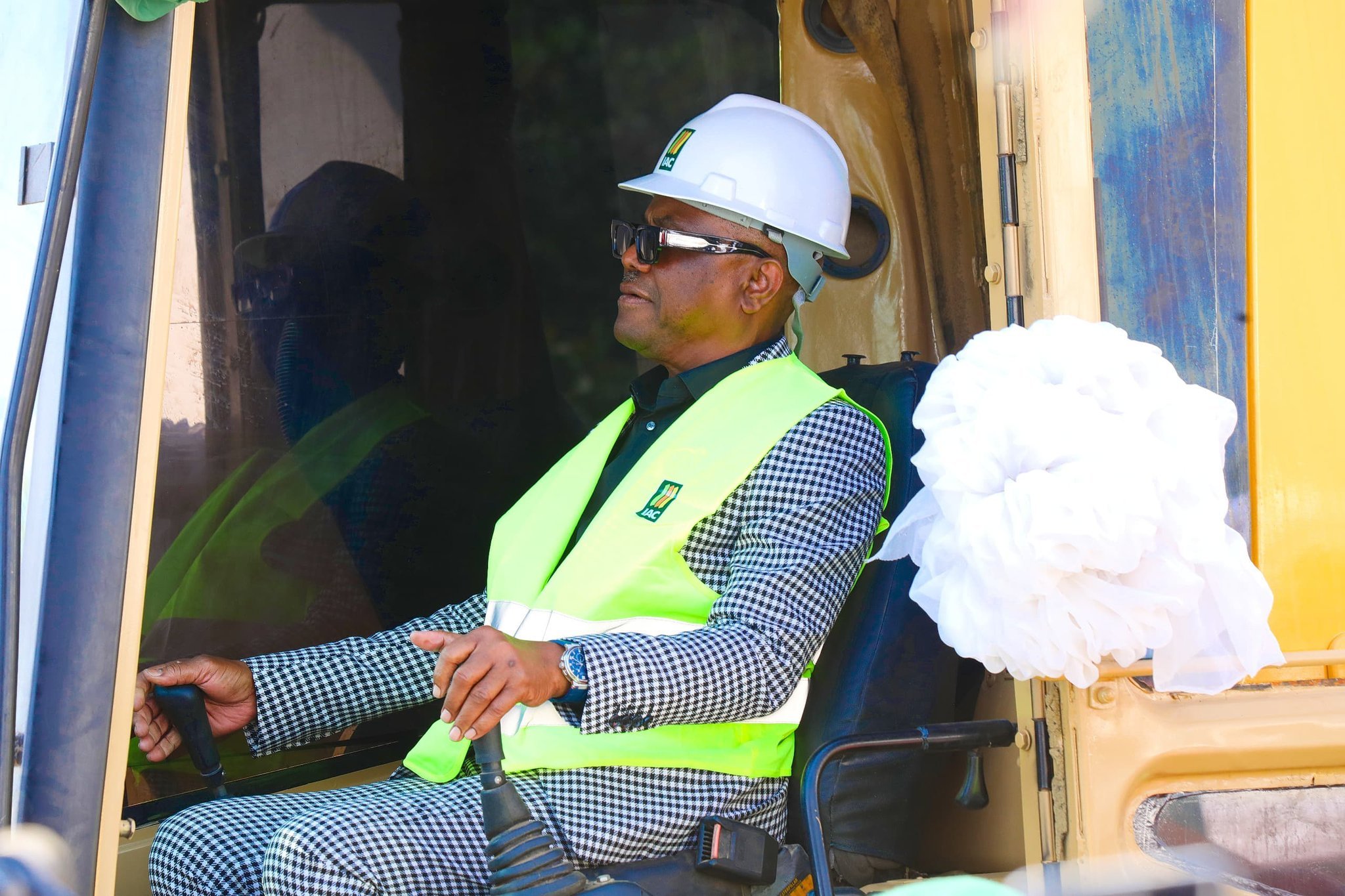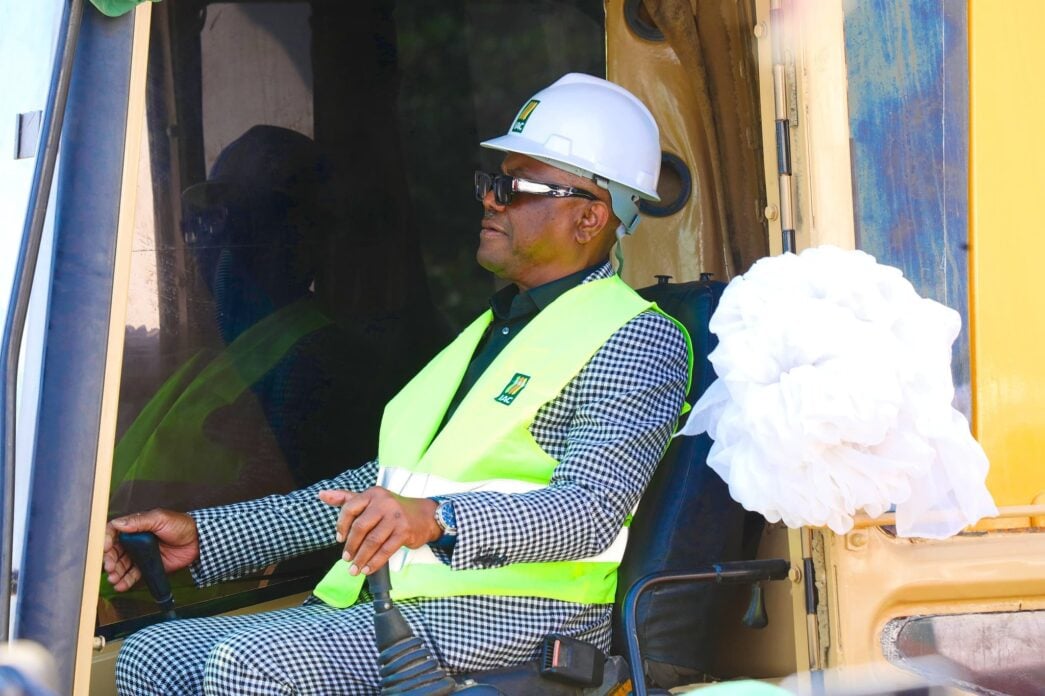BY NNAA KALU NTO
Nyesom Wike is not a man who tiptoes into a room. He arrives with purpose, presence, and precision. As the minister of the Federal Capital Territory, he has managed to stir both admiration and controversy in equal measure. Yet, beneath all the noise surrounding him, one fact remains clear: Abuja is changing under his watch. And that change must not be interrupted by distractions or political feuds that only serve the interests of a few.
To understand why Wike must stay focused, one must understand what Abuja means to those of us who have lived here long enough to see it evolve. I have lived in this city for more than twenty years. I have seen the quiet neighbourhoods of Garki transform into bustling commercial corridors. I have watched dusty roads in Kubwa, Nyanya, and Lugbe slowly give way to tarred ones. I have also watched projects begin with enthusiasm and end in silence, swallowed by bureaucracy and corruption. So when a public servant finally brings urgency, it deserves both scrutiny and support.
A City on the Move Again
Advertisement
Abuja has always been described as a “city of promise”; one that represents what Nigeria can become if order and vision coexist. But for many years, it felt like that promise was fading. Projects were abandoned. Illegal structures mushroomed everywhere. The master plan, once treated as sacred, became negotiable. Then came Wike, and things began to move again.
Since assuming office, Wike has injected visible energy into the FCT administration. He has supervised the construction and rehabilitation of several major roads across the capital, from the arterial expressways that connect the city centre to satellite towns, to smaller internal routes that had been neglected for years. The FCT’s 2025 budget reflects this focus. It targets over N1.7 trillion in internally generated revenue, with a substantial chunk allocated to capital projects. For the first time in years, there is a clear sense of direction.
When Wike speaks about infrastructure, he doesn’t just talk about asphalt and gravel. He talks about dignity. During one of his site inspections earlier this year, he said something that struck me deeply: “If a road can take a woman safely to the hospital to give birth, that road is not just a project. It is a blessing.” Those words reminded me of 2020, while on essential duty during the COVID-19 lockdown, when my car got stuck in deep mud on the dusty road linking Kuje to Gwagwalada after a heavy rain. It took hours before help arrived, and an expectant mother in a nearby car went into distress before she could reach the hospital. That experience etched a simple truth in my mind: bad roads kill dreams and sometimes people. So when I see bulldozers working today in places that had long been forgotten, I see progress, not politics.
Advertisement
Why Distractions Are Dangerous
Wike’s challenges are not physical alone. They are political and deeply personal. The noise around his alleged fights with his party, the recent expulsions from a faction of the PDP, and the constant courtroom drama have turned him into a lightning rod for controversy. Yet, the real danger lies not in the criticisms but in the temptation to respond to all of them. He must resist that urge. Politics can wait. Governance cannot.
There are four key reasons Wike should stay rooted in his work rather than be drawn into partisan storms.
Infrastructure thrives on focus, not fanfare
Advertisement
Good governance is rarely glamorous. Building a road takes months of planning, permits, funding, and supervision. Completing a hospital requires negotiation with contractors, constant oversight, and tough financial decisions. These processes are easily derailed when the leader becomes more interested in winning political arguments than winning public confidence. If Wike continues to pour his energy into projects rather than politics, Abuja will keep moving forward.
Trust is built slowly but can vanish overnight
It is no small thing that the National Assembly has commended Wike’s leadership. Lawmakers from different parties have praised his fiscal discipline and visible progress on infrastructure. That cross-party goodwill is rare in Nigerian politics. It must not be squandered by unnecessary feuds. As my fellow Igbo say, “onye ajuru aju anaghi aju onwe ya”, the rejected does not reject himself. If others choose conflict, Wike must choose continuity.
Abuja is watching, not Abuja politicians alone
Advertisement
The ordinary residents are the real judges of his performance. The taxi driver now spends less time fixing his suspension because a once-broken road has been repaired. The market woman in Karmo whose goods no longer get soaked in the rain because drainage systems are nonexistent. The schoolchild who no longer walks through puddles on her way home. These are the people who benefit directly from his focus. They do not care about party squabbles; they care about progress.
Legacy is not in loud speeches but lasting structures
Advertisement
Long after the noise of politics fades, what will remain are the roads, bridges, schools, social intervention schemes and housing projects completed under his watch. A flyover that reduces travel time by twenty minutes will speak louder than a thousand press conferences. Legacy is quiet but undeniable. It is not what one says; it is what one leaves behind. Abuja deserves a leader who builds legacies, not one who trades insults.
Personal Reflections: The City I Know, The Change I See
Advertisement
When I arrived in Abuja to join my parents who had relocated from Jos over two decades ago, the city was still finding its rhythm. The roads were cleaner, the air fresher, and public utilities worked reasonably well. In those days, we smelt the chlorine coming out of the taps and drank the tap water without fear. But as the population grew, systems began to strain. As a youth corper, I remember commuting from Kubwa to Berger round about daily, a journey that could take two hours on bad days. Streetlights hardly worked, and many housing projects were abandoned halfway. I also remember how, in 2014, a family friend of mine who was a contractor spent years chasing unpaid government invoices until he gave up and eventually died. These were symptoms of a city slowly losing its discipline.
In the past year, something feels different. There is tension, yes, but also movement. Construction workers are visible again. Sites that once gathered weeds are buzzing with activity. Many lonely roads now have reliable solar street lights that give residents some sense of safety. The FCT Administration has begun to enforce planning regulations, pulling down illegal buildings that blocked waterways or violated land use laws. Many complain, but deep down, most residents know it is necessary. Abuja cannot be allowed to grow like an unkempt forest or a glorified ghetto.
Advertisement
I saw the effect of this change first-hand on my route through Lokogoma. For years, that area was infamous for its floods. People lost homes and cars whenever it rained. But recent efforts to rebuild drainage channels and expand road networks have started to pay off. This is what governance should look like: consistent, visible, and unapologetically focused on people’s welfare.
The Work Ahead
There is still much to be done. Traffic congestion remains a menace in some parts of the FCT. Affordable housing is still out of reach for many. The satellite towns need better public schools and clinics. And the city’s light rail project must become more than a photo opportunity. Wike’s energy and authority are well suited for tackling these issues. But he can only do so if his attention is not divided.
He must let go of political distractions. The ongoing tussle within his former party should not drag him into endless rebuttals. Abuja residents do not want a Minister who fights politicians. They want one who fights potholes, disorganisation, and inefficiency. The truth is simple: Nigeria’s capital deserves to look and feel like a capital city. Anything less would be an insult to the idea of national pride.
Wike’s role gives him the chance to redefine what leadership can look like in a place as symbolic as Abuja. The city stands not only as an administrative hub but as the mirror through which the world sees Nigeria. If Abuja thrives, the entire nation stands taller.
My one kobo
Nyesom Wike must remember that greatness in leadership is not measured by the number of enemies one defeats but by the number of lives one improves. He should continue to inspect sites, sanction negligence, stand up to impunity no matter whose axe is gored and ensure Abuja’s projects are completed on time. The people are watching. The city is watching. History, too, is watching.
If he can stay focused, Abuja will not just become cleaner or more organised. It will become a symbol of what determined leadership can achieve. And when the noise of politics eventually fades, the roads, the light rail, and the restored order will stand as testimony that at least once, someone chose to work instead of argue.
Abuja has perched under the weight of neglect for too long. Now that progress has found its footing, no one should shake the branch.
Nnaa Kalu Nto can be reached via [email protected]
Views expressed by contributors are strictly personal and not of TheCable.

